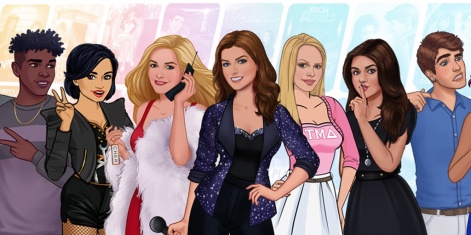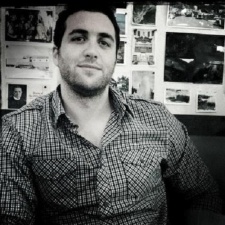The games industry plays host to an excellent cast of colourful and diverse individuals, from artists and coders to narrative designers and studio heads.
The skills to pull off these roles, however, are complex and differing. With each position requiring mastery in its field. As such, seeing a game come together is a beautiful thing akin to a puzzle as an overall picture becomes whole.
To highlight some of the brilliant work that goes on behind the screen and help others who may be keen to dive in, PocketGamer.biz has decided to reach out to the individuals who make up the games industry with our Jobs in Games series.
This time we spoke with Pocket Gems art director Alex Muscat.
PocketGamer.Biz: Can you tell us about your current role and what it entails?
Alex Muscat: My role as an art director at Pocket Gems can be grouped into three main buckets. First is shaping the creative vision: an art director has to establish a clear vision that people buy into as a group, that they’re excited about and can rally behind.
I remember reading Nintendo Power interviews and learning about games development software far before the internet even existed.Alex Muscat
Next comes art direction: I’m reviewing artists' work on a daily basis and providing feedback and next steps until it hits the established vision and direction. Finally, there’s staff management: this involves hiring, staffing and working with team leads to plan out our needs and develop our road map.
How did you first get into games and how did you progress into the role?
Game development degrees didn’t exist back when I started my career, so I finished a course in 3D animation and visual effects which led me to a company called Sandbox Studios (later purchased by DICE and finally Electronic Arts). We were building PlayStation One games back then but on the cusp of developing on Xbox.
Technically, my job was 'level designer' but back then that label entailed everything an environment artist does now to level design. Over 17 years, I eventually became a studio art director by continually improving my craft and getting promoted.
Is it something you ever imagined yourself doing?
Yes. I remember reading Nintendo Power interviews and learning about games development software far before the internet even existed. I also remember getting a '3D Studio Max for Dummies' book and a free trial to poke around in Max, so I could dig into Diablo files to look at unreleased content.
What did you study (if anything) to get your role? What courses would you advise for aspiring professionals in the area?
The software tools in my 3D animation and visual effects course luckily helped translate over to Xbox. Years later, I actually wrote the curriculum for one of the first ever game development college courses in North America so it would be easier for aspiring developers to find a smoother path into the industry. It was a nice way to give back to the industry.
I recommend taking specific game development courses now that they’re more prevalent. School will help you find the tools easier and understand the principles of art and game development. Of course, you can learn everything online without even going to school, it just takes more work and determination.

I would also say that games are insanely hard to build. It’s a miracle sometimes they even get built. You’ll even hear in the industry: “the hardest thing about making a game is just shipping it". Part of this is because there is a very steep learning curve and success or mastery is determined by the effort you put in.
If you put a little into mastering your craft don’t expect much in return. But if you put a lot into your craft and constantly practice, you’ll get a lot out of it. Becoming an excellent artist or game developer is about relentless practice.
You will never cheat the hard work needed to make something amazing. Nobody is ever born a master artist or games developer.
What part of your role do you find most fulfilling?
Helping artists become better and succeeding as a team. I’ve been able to work with people very early in their careers who went on to art direct movies or other games. That’s very rewarding. It is really satisfying to partner with an artist and help them hit their goals and level up their skills, and when all the artist's pistons are pumping on a team, it always looks special in the final product.
Do you think there are any misconceptions, public or professional, surrounding your area of expertise?
Art directors are not as hands-on as you think. They just don’t have the time to sit there with headphones and build something all day.
If you put a little into mastering your craft don’t expect much in return. But if you put a lot into your craft and constantly practice, you’ll get a lot out of it.Alex Muscat
If you want to be an art director, be ready to let go of your craft to some degree - believe me, this is not an easy thing to do after you’ve done it for many years. There is a lot more 'non-art director' stuff to deal with on a studio level, like staffing, management and hiring.
It’s important to realise that the artists are the tools - not the software. So, the better you can communicate a vision an artist, the more seamless things will be. I enjoy the challenge of knocking down the walls between artists and director and doing a mind meld around vision and expectations.
Is there anything about the job/industry you wish you would have known when first joining?
Honestly, I knew almost nothing about the industry when I entered it, I just loved games. Luckily nothing was particularly scary or awful. I have no regrets whatsoever and I’m very happy with how it all played out.
What other advice do you have for someone looking for a job in this profession?
Go to the end point of where you want to be first. Make sure it’s actually where you want to be, not what you imagine it to be.
Before you pay for that tuition or dedicate a lot of time and effort to something, be informed and know what you’re getting into. Talk to a senior games developer and ask them your most important questions.
Believe me: you may imagine it one way but it’s most likely just different. That individual will also be the best person to review your resume and portfolio and guide you to where you want to go.





















